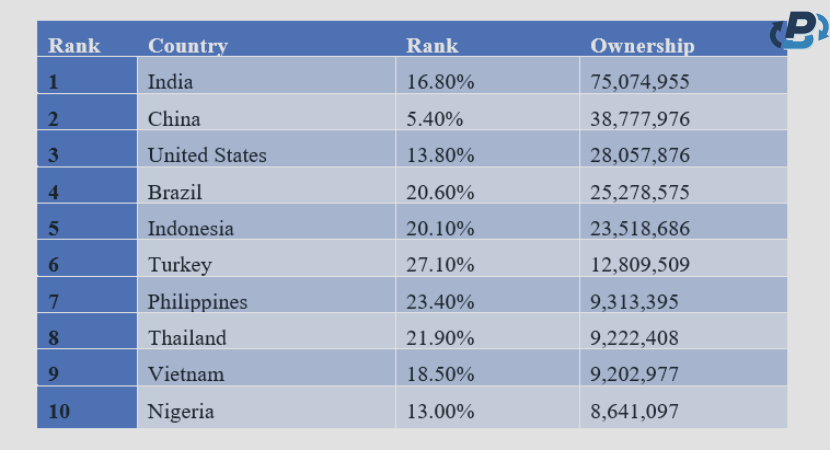Bitcoin, the first digital currency, has changed the meaning of digital money with its diversity and uniqueness. Buyers should understand Bitcoin price movement, as Bitcoin prices fluctuate widely on the cryptocurrency market. Many factors like supply and demand, market opinion, institutional adoption, and global economic issues affect Bitcoin’s value. If you are new to cryptocurrency, these trends will help you predict Bitcoin’s action and make better business decisions in a fast-changing financial world.
Supply and Demand Dynamics
Bitcoin’s 21 million scarcity makes it essential; unlike traditional currencies, Bitcoins cannot be produced at any time. Bitcoin halving occurrences occur approximately every four years, slashing mining payouts in half. This delays Bitcoin production and lowering the supply even more. Demand growth has quickened as more buyers and businesses perceive Bitcoin as valuable. People and corporations are increasingly interested; demand rises, but supply stays unchanged. Scarcity, Bitcoin halving events, and increasing demand push up Bitcoin prices. Demand should expand faster than Bitcoin supply now that there is almost as much space. This will keep Bitcoin’s price high, making it valuable.
Market Sentiment and Speculation
Since market mood affects consumer behaviour, Bitcoin’s price fluctuates quickly and FOMO is common. Brokers hurry to buy Bitcoin when its price rises to avoid losing profits. Bitcoin speculation rises during this rush, often creating a feedback cycle that increases prices.
Many believe this because of social media, current events, and hype. Celebrities’ interest in something can excite consumers and raise costs. Bitcoin market volatility can happen quickly, as people may sell rapidly if they receive negative news regarding unhelpful rules or practices. Buyers lose faith and leave to prevent losses, this impacts Bitcoin market sentiment, affecting panic and optimism. Learn about these emotional and risky trends to understand Bitcoin’s price swings.
Institutional Adoption and Investment Trends
Bitcoin price and market trust depend on the number of companies using it. Bitcoin ETFs make it easy for investors of all sizes to invest in Bitcoin without possessing it. Because regulatory permission allows investors to invest in typical financial markets, demand rises, and investors feel safer.
The attention of Tesla and MicroStrategy suggests that Bitcoin is becoming a mainstream investment. Tesla invested $1.5 billion in Bitcoin, and MicroStrategy kept buying Bitcoin stocks, convincing many that Bitcoin is an asset class. PayPal lets people purchase, sell, and hold Bitcoin, strengthening this trend.
Bitcoin acceptance is growing, which makes Bitcoin investors feel better and keeps the bitcoin price stable and rising. Institutional adoption could increase, making Bitcoin more essential in the shifting financial environment.
Global Economic Factors and Macroeconomic Trends
Bitcoin is essential as an inflation hedge in a weak economy. Inflation devalues everyday money. Many traders use Bitcoin to secure their funds. Due to this change in demand, Bitcoin is safe in a volatile global economy.
Global events like recessions, currency depreciation, and political turmoil might affect Bitcoin. When the economy is poor and people don’t trust fiat money, they hunt for safe things to sell. Since Bitcoin is limited and decentralized, it is more enticing as a haven from unstable countries.
Bitcoin as digital gold, stores value better than gold in many aspects. Because they fight inflation, these two are considered alternatives to ordinary investments. Bitcoin is getting more popular as a digital asset, but it’s not a good investment. It is also helpful in protecting wealth amid economic downturns.
Regulatory Impact and Government Policies
Government cryptocurrency rules and regulations are essential for Bitcoin. Good Bitcoin rules can increase investor and corporate trust and adoption. El Salvador became the first country to recognize Bitcoin in 2021. Good government policies encourage Bitcoin use, this considerable decision increased Bitcoin’s popularity and prompted other governments to adopt similar restrictions.

However, not knowing if cryptocurrency laws will tighten will deter buyers and destabilize the market. Some nations say they may tighten exchange restrictions or introduce charges, which can accelerate sales and lower pricing. Bitcoin’s value has fallen due to China’s tighter laws, illustrating how government actions can hurt.
Anyone interested in Bitcoin regulation or government policies should know about these changes. You need to know these facts to navigate the cryptocurrency market and estimate Bitcoin’s growth.
Bitcoin Mining and Energy Costs
Bitcoin mining verifies transactions and adds new bitcoins to the network. This action requires considerable energy consumption since it demands a lot of computer power. Power expenses affect Bitcoin mining costs, which in turn directly affect Bitcoin’s value. Increasing energy costs can cause miners to lose money and sell Bitcoin to pay bills, and Bitcoin may fall due to this selling pressure.
Bitcoin alters mining difficulty every two weeks to balance supply and demand. No matter how many miners or how powerful their computers are, the blockchain is slowly adding new blocks. Risk increases as miners join the network, hindering Bitcoin creation. However, miners leaving the market reduce difficulty, balancing bitcoin production.
Many people have strong opinions on the influence of Bitcoin mining. Some worry about the long-term effects of excessive energy use, especially in fossil fuel-dependent areas. Mining supporters argue that it can switch to sustainable energy, reducing its environmental impact.
SEE ALSO: A Beginner’s Guide to Using Coinbase, Binance, and Kraken to Buy SHIB in the USA
Conclusion: Navigating Bitcoin’s Market Trends
We discussed Bitcoin market trends’ are the most important factors. Supply and demand, market sentiment, institutional adoption, the global economy, rules, and mining costs change. As you participate in cryptocurrency investing, you must know these aspects because they can significantly affect Bitcoin price drivers. Knowing market shifts and other outside elements will improve your decision-making. Even though Bitcoin’s price fluctuates, these tendencies can help you navigate cryptocurrencies more easily and thoughtfully. Spending wisely is the most excellent way to succeed with Bitcoin and other cryptocurrencies.



